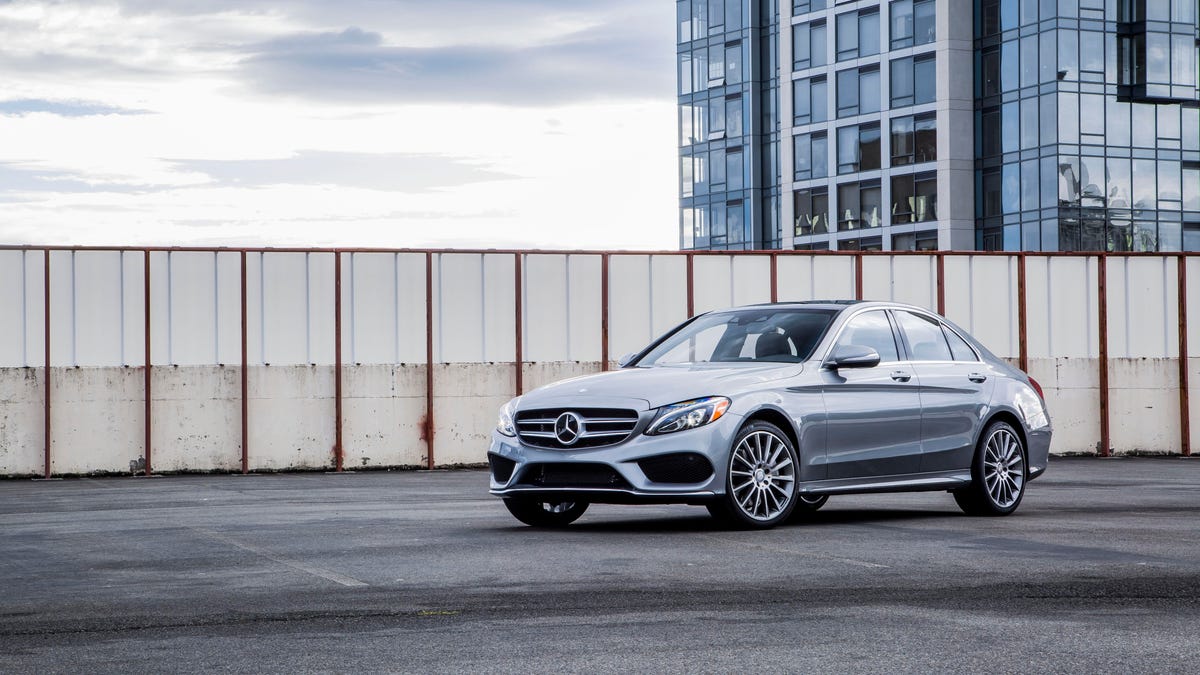Mercedes-Benz won't sell diesel passenger cars in the US
Low consumer interest means diesel "doesn't fit" into the luxury brand's US portfolio.

Blame it on Dieselgate; blame it on the growing acceptance of electrification. Whatever the case, Mercedes-Benz will reportedly stop selling diesel-powered passenger cars in the United States.
According to an interview with The Detroit Bureau, Mercedes' Car Group research and development boss Ola Källenius says the automaker has developed a new diesel engine that meets tough new European emissions standards, but that this powertrain won't make its way to the US, citing a lack of customer interest.
At its best, Källenius says diesel accounted for just 3 percent of Mercedes' overall sales in the US. "The diesel doesn't fit into our portfolio in the US," Källenius tells The Detroit Bureau.
You won't be able to stuff your brood into a new diesel-powered GLS any more.
This isn't a huge shock, mind you. Just last year, Mercedes opted to stop the certification process of its 2017 model-year diesel vehicles in the US. We were originally slated to get oil-burning versions of the C-Class sedan and GLS-Class SUV, but both were nixed as a result of the tougher certification standards, following widespread emissions cheating (thanks, Volkswagen Group!).
When reached for comment, a Mercedes-Benz USA spokesperson told Roadshow:
"Yes, as already communicated we have put the certification process for diesel passenger cars on hold for the time being. We will continue to offer the diesel in our Sprinter, as evidenced by the launch of our MY2017 Sprinter. For passenger cars, the diesel engine is a niche product in the US; the market share of diesel cars in relation to total sales is significantly less than one percent. Obviously, we reserve the option to resume the certification of diesel engines for our passenger cars - but this will first and foremost depend on the demand."
Of course, this demise of Daimler diesel won't affect all of Mercedes' US products. The wonderfully useful Sprinter van will continue to offer diesel powertrains. In fact, a next-generation Sprinter is right around the corner, production of which will kick off at Mercedes' brand-new vans facility in South Carolina.
Nope, you won't be able to get an oil burner in your next C-Class, either.
Don't let this news lower your expectations for diesel's success in the US, either. Despite Mercedes moving away from these torque-tastic engines, other companies are expanding their diesel offerings in our market. Ford recently announced new diesel six-cylinder engine for the F-150 pickup. Jaguar Land Rover has found decent success with its Ingenium family of diesel engines, now offered in the Jaguar XE, XF, F-Pace, and Land Rover Discovery, Range Rover, Range Rover Sport and Range Rover Velar. Even Mercedes' key German rival, BMW, offers diesel engines in the 3 Series and X5, and more are on the way.
On the less-premium front, General Motors offers diesel power in its Chevy Colorado pickup, Equinox crossover and Cruze compact, and there's a new inline-six engine being developed for the Silverado pickup. GMC has diesel offerings in its equivalent models, too.
Diesel is dead! Long live diesel!
Update, Jan. 5: The article has been updated to include a quote from a Mercedes-Benz spokesperson.

